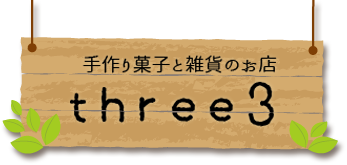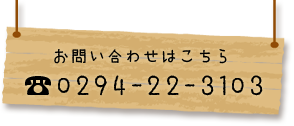2022年6月
-
j$k5569555j$k
Quasi-Contract Recovery: Understanding the Basics
In the world of legal contracts, you may have heard the term “quasi-contract.” What exactly does this mean? And how can it impact your recovery if you find yourself in a dispute with another party?
Let’s dive in and take a closer look at quasi-contract recovery, including what it entails, how it differs from a traditional contract, and what steps you can take to protect your interests.
What is a Quasi-Contract?
Also known as an “implied-in-law” contract, a quasi-contract is a legal concept used to describe a situation where two parties have not entered into a formal agreement, but where one party has received a benefit from the other party.
In essence, a quasi-contract implies a contract where none actually exists. It is a legal construct that is designed to prevent unjust enrichment.
For example, let’s say that you perform some work for a neighbor, but you do not have a written agreement in place. If your neighbor then refuses to pay you, you may be able to seek recovery under a quasi-contract theory.
How Does Quasi-Contract Recovery Work?
To recover under a quasi-contract theory, you must be able to show three things:
1. That you provided some benefit or service to the other party.
2. That the other party accepted the benefit or service.
3. That it would be unjust for the other party to retain the benefit without compensating you.
In other words, quasi-contract recovery is based on the idea that it would be “unfair” for one party to receive a benefit or service without compensating the other party. This broad principle applies regardless of whether a formal agreement was in place.
Quasi-Contract vs. Contract
It is important to note that a quasi-contract is not the same thing as a traditional contract. Unlike a contract, which is a legally binding agreement entered into by two parties, a quasi-contract is a legal construct that is created by the courts to prevent unjust enrichment.
Another key difference is that a traditional contract involves a meeting of the minds between the parties. In other words, both parties must agree to the same terms in order for the contract to be valid. This is not the case with a quasi-contract.
Finally, while a contract may be explicit in terms of how payment will be made, the terms of a quasi-contract will be determined by the courts. This makes it somewhat less predictable than a traditional contract.
Protecting Your Interests
If you find yourself in a dispute with another party and believe that quasi-contract recovery may be appropriate, it is important to take steps to protect your interests. This may include documenting the services or benefits you provided, gathering evidence of the other party’s acceptance of those services or benefits, and seeking the advice of a qualified attorney.
By understanding the basics of quasi-contract recovery, you can better protect your rights and interests in any legal dispute.
-
j$k5830132j$k
As a professional, I understand the importance of creating content that answers specific questions and addresses common concerns that people may have. One common question that arises in the world of leasing is, “who pays DST on lease contracts?” In this article, we will explore the answer to this question and provide some helpful information for those navigating a lease agreement.
First, let`s define what DST is. DST stands for document stamp tax, which is a tax imposed by the government on certain documents, including lease agreements. The amount of DST varies depending on the location and the value of the lease agreement. In Malaysia, for example, the rate is 0.5% of the total lease amount.
So, who is responsible for paying the DST on a lease contract? The answer to this question may vary depending on the provisions of the lease agreement and the laws of the jurisdiction in which the lease is executed. In some cases, the landlord may be responsible for paying the DST, while in other cases, the tenant may be responsible. It is important to review the lease agreement carefully to determine who is responsible for paying the DST.
In some cases, both the landlord and the tenant may agree to split the cost of the DST. This is often negotiated as part of the lease agreement and may be included in the rent payment or paid separately.
It is important to note that failing to pay the DST can result in penalties and legal consequences. In Malaysia, for example, a late payment penalty of 10% per annum is imposed on any unpaid DST, and legal action may be taken against the parties who fail to pay.
When entering into a lease agreement, it is important to consult with a legal professional to ensure that all necessary taxes and fees are properly accounted for and paid. A legal professional can also advise on the specific laws and regulations in the relevant jurisdiction.
In conclusion, the answer to the question of who pays DST on lease contracts may vary depending on the lease agreement and the laws of the jurisdiction in which the lease is executed. It is important to review the lease agreement carefully and consult with a legal professional to ensure that all necessary taxes and fees are properly accounted for and paid. Failure to pay the DST can result in penalties and legal consequences, so it is important to take this responsibility seriously.
-
j$k5222119j$k
Dish and CBS Reach Agreement in 2020: What it Means for Consumers
After months of negotiations, Dish and CBS have finally reached an agreement, much to the relief of consumers who were caught in the crossfire. The agreement, which was announced on February 12, 2020, will see CBS channels such as CBS Sports Network, Smithsonian Channel, Pop TV, and the CBS Network, among others, back on the Dish Network.
The negotiations were long and protracted as both sides tried to come to terms with the financial implications of the deal. Dish claimed that CBS was asking for higher rates than what other content providers were charging, while CBS argued that it was only asking for fair compensation for its content. The situation was further complicated by the fact that CBS is also a broadcaster, so it has to contend with both upfront fees and backend royalties.
It is important to note that the negotiations didn`t just impact Dish subscribers; they also affected those who subscribe to other satellite and cable providers. During the negotiations, CBS had blocked access to its content for these providers as well, which meant that millions of people were unable to watch their favorite shows. It was a frustrating time for consumers who were caught in the middle.
So, what does the agreement mean for consumers? Firstly, Dish subscribers can now access all CBS channels that were previously blocked. This is great news for sports fans who were unable to watch live games on CBS Sports Network. Secondly, the agreement sets a precedent for fair compensation for content providers. CBS set the bar high for other broadcasters and content providers, indicating that it is willing to fight for fair compensation for its content.
The agreement is also a reminder of the importance of content in the entertainment industry. In today`s world of streaming services, content is king, and broadcasters like CBS are keenly aware of this fact. Consumers are willing to pay for quality content, and Dish and other providers must recognize this if they want to remain competitive.
In conclusion, the Dish and CBS agreement is a win for consumers who can now access all CBS channels previously blocked. It also sets a precedent for fair compensation for content providers, which is vital for the health of the entertainment industry. Hopefully, this agreement will serve as a reminder to all providers of the importance of content and the need to ensure that it is fairly compensated.



